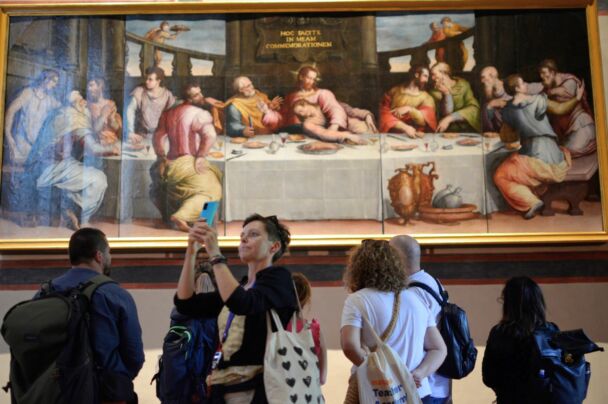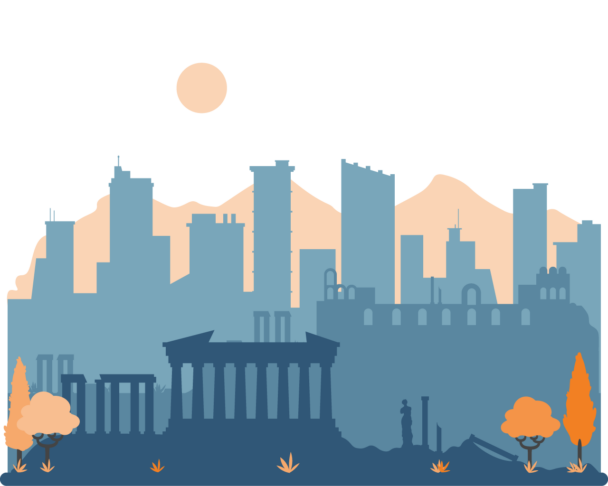Description
Basic Computer Proficiency required. Read more »
Basic computer proficiency courses are designed for individuals who have limited experience with technology. Participants will learn fundamental skills such as navigating the web, and using basic programs.
In an increasingly digital world, the preservation, exploration, and valorization of Arts, Museums, and Cultural Heritage have taken on new dimensions.
This immersive course offers a multifaceted approach to understanding and utilizing digital technologies for the presentation and promotion of Cultural Heritage in the classroom while fostering knowledge about artistic expression and the benefits of outdoor education.
Participants will delve into the utilization of digital tools, multimedia resources, and interactive platforms to create engaging and enriching learning programs centered around the values of Cultural Heritage Education and European Digital Heritage.
In particular, the course covers innovative topics such as digital storytelling, photo and video making, digital quizzes, scavenger hunts, and Artificial Intelligence, preparing participants to contribute to the valorization and dissemination of Cultural Heritage in a rapidly evolving digital landscape.
Moreover, the integration of classroom-based instruction with outdoor learning activities in museums and historical centers will boost and strengthen the 4Cs of 21st-century Century Learning: Collaboration, Communication, Creativity, and Critical thinking skills.
By the end of the course, participants will have explored museums with their masterpieces, and been immersed in the city’s historic center, gaining valuable exposure to the real-world applications of digital tools in the historical, artistic, and cultural context, among other disciplines.
Note: Two additional cultural activities can be included in the course and will take place directly in museums or in the city’s Cultural Heritage sites.
What is included
Learning outcomes
The course will help participants to:
- Foster a common sense of identity through Cultural Heritage Education (CHE) and the European Digital Heritage;
- Learn the latest innovative apps to create digital storytelling and video-making activities;
- Manage digital projects and innovative ICT tools, including AI – Artificial Intelligence;
- Create engaging outdoor learning activities in museums;
- Learn the best practices to motivate your students through digital platforms;
- Introduce gamification in your school curricula;
- Develop learning activities that enhance students’ 4Cs skills with the assistance of digital tools.
Tentative schedule
Day 1 – Introduction to cultural heritage education and European digital heritage
- Introduction to the course, the school, and the external week activities;
- Icebreaker activities;
- Presentations of participants’ schools;
- Introduction to Cultural Heritage Education and European Digital Heritage;
- Creating a digital learning environment to share common values and culture.
Day 2 – ICT tools for digital storytelling related to cultural heritage
- Discovering the principles of creative storytelling;
- Creating and sharing visual content;
- Critical thinking exercises in museums with the Artful Thinking Palette;
- Cultural visit.
Day 3 – Digital quiz, games, and scavenger hunt
- The educational benefits of gamification;
- Collaborative digital quizzes and games with Art & Culture;
- Discovering the Cultural Heritage through a Digital Scavenger Hunt;
- Teamwork activities.
Day 4 – The cultural heritage digitalization and artificial intelligence
- The power of Cultural Digital Archives;
- Creating content with Artificial Intelligence;
- AI and visual arts;
- Cultural visit.
Day 5 – Final lesson plan presentations
- Final teamwork activities;
- Feedback and Assessment;
- Projects presentations.
Day 6 – Course closure and cultural activities
- Course evaluation: round-up of acquired competencies, feedback, and discussion;
- Awarding of the course Certificate of Attendance;
- Excursion and other external cultural activities.











